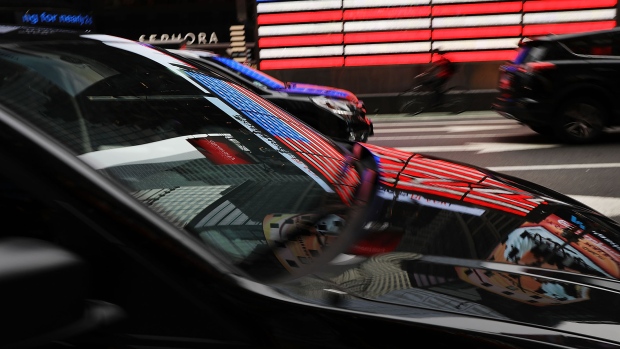Feb 1, 2019
Uber raises prices in New York City, citing new minimum wage law
, Bloomberg News

Uber is raising prices -- and squeezing drivers -- in New York City, where a new minimum wage rule is in effect.
Uber Technologies Inc. will increase the price of trips in the city starting Friday in response to the new rule, the company said in a statement to Bloomberg. In addition, because the rule requires the company to compensate drivers for their return trips after taking riders outside the city, some out-of-town fares will incur a surcharge. A representative of Uber declined to say how much more expensive rides would become.
On top of those price hikes, Uber passengers in much of Manhattan will start paying US$2.75 more per trip, and 75 cents per trip for group rides, separate state congestion surcharges that a New York Supreme Court judge ruled Thursday could take effect while a challenge from taxi drivers and medallion owners proceeds.
As for its New York City drivers, the San Francisco company said, some offers of bonus pay may no longer be available, and starting in May its premium Uber Black service will be restricted to drivers with at least a 4.85 customer rating out of 5. As of September, it will additionally be restricted to those with a vehicle from a narrowed list of options. Passengers will now have five rather than two minutes to arrive at the pickup point, but drivers will get paid more for the time they spend waiting after that.
The wage rule, passed in December by the city’s Taxi and Limousine Commission following city council legislation, guarantees drivers minimum pay of US$17.22 an hour. Both Lyft Inc. and Juno filed lawsuits Wednesday to block the rule, which is part of Mayor Bill de Blasio’s effort to cap the growth of app-based, ride-for-hire platforms and reduce traffic congestion.
In its suit, Lyft said the rule, which ties minimum pay to how often drivers have a rider in their vehicles, gives “an automatic and perpetual advantage” to Uber, the industry leader. Judge Andrea Masley set a March 18 hearing and in the meantime offered app-based ride-hailing companies the option of placing the additional pay in escrow. Lyft declined to comment on whether it would do so; Juno didn’t respond to an email seeking comment.
Uber, which isn’t challenging the rule, said Thursday it had told the court “that we do not intend to hold back any portion of drivers’ earnings.”





